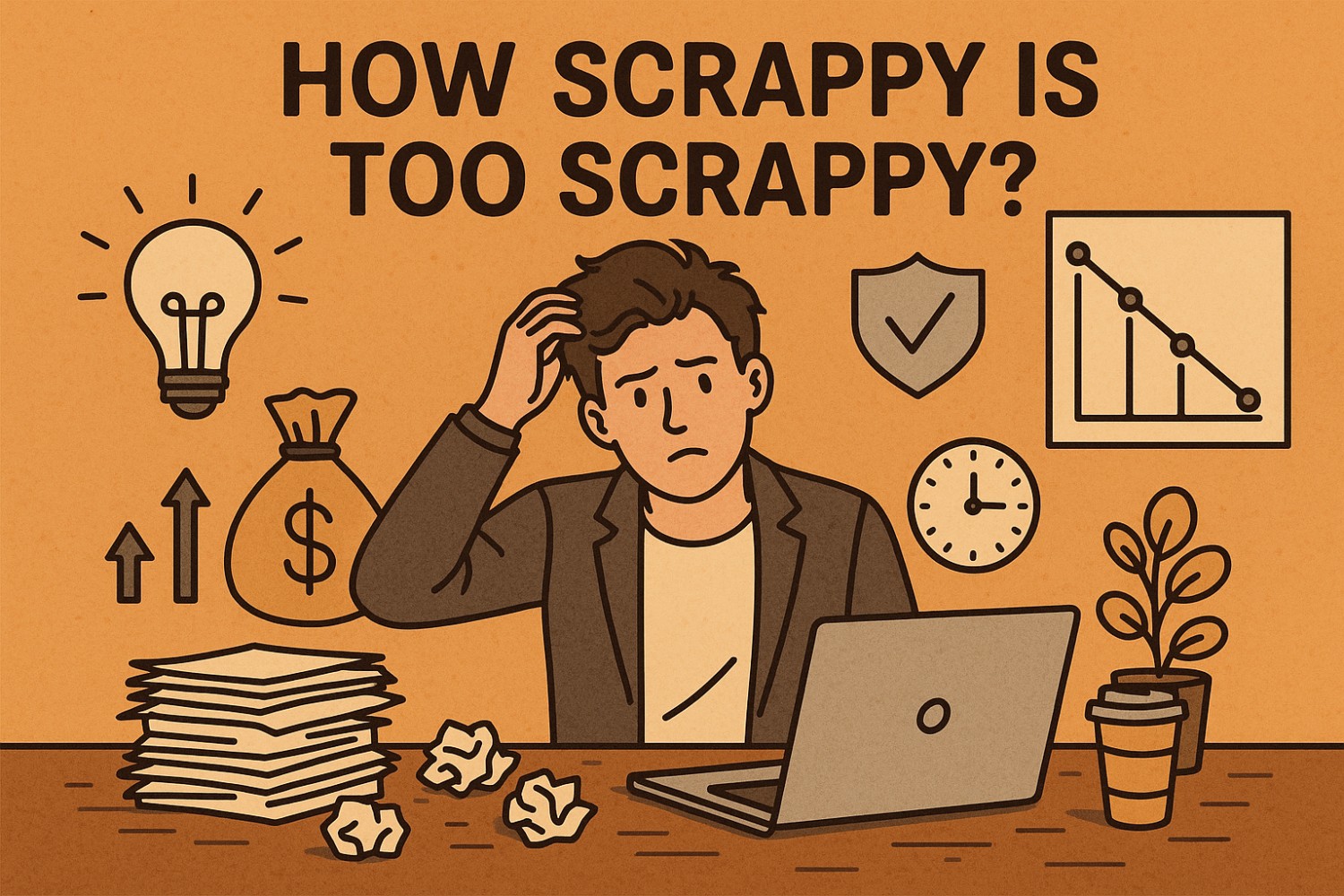In the startup world, being scrappy is often celebrated as a badge of honor. It signifies resourcefulness, ingenuity, and the ability to make things happen with limited resources. But is there a point where scrappiness becomes detrimental? How scrappy is too scrappy, and where should startups draw the line?
The Virtues of Scrappiness
Scrappiness is about maximizing efficiency and making the most out of minimal resources. It involves creative problem-solving, leveraging unconventional methods, and maintaining a relentless drive to succeed. The advantages of this approach are numerous:
Cost Efficiency: Startups often operate on tight budgets, and scrappiness helps in stretching every dollar.
Agility: Being scrappy means being nimble and able to pivot quickly in response to market demands or unexpected challenges.
Innovation: Limited resources can drive innovative solutions and out-of-the-box thinking.
Resilience: Scrappiness builds a culture of resilience and determination, essential for overcoming the inevitable obstacles on the entrepreneurial journey.
The Pitfalls of Excessive Scrappiness
However, there is a fine line between being scrappy and being overly frugal or cutting corners in ways that can harm the business in the long run. Here are some signs that your scrappiness might be going too far:
Compromising Quality: If your product or service suffers in quality due to cost-cutting measures, it can damage your brand's reputation and erode customer trust.
Burnout: Overworking your team to save costs can lead to burnout, decreased morale, and high turnover, which ultimately impacts productivity and growth.
Short-Term Thinking: Focusing solely on immediate survival without planning for sustainable growth can hinder long-term success.
Legal and Ethical Risks: Cutting corners might lead to legal issues or ethical dilemmas that can have severe repercussions for your startup.
Missed Opportunities: Being overly cautious with spending might mean missing out on valuable opportunities for investment, growth, or market expansion.
Finding the Balance
Achieving the right balance between scrappiness and prudence is crucial for startup success. Here are some strategies to help you find that balance:
Prioritize Key Areas: Identify the areas where cutting costs will not compromise quality or growth. For instance, you might save on office space but invest in top-notch talent or critical technology.
Plan for Growth: While it's essential to manage your current resources wisely, always keep an eye on future growth. Develop a scalable business model that allows for expansion when the time is right.
Invest in Relationships: Building strong relationships with customers, investors, and partners can provide valuable support and resources that go beyond immediate financial constraints.
Monitor Metrics: Regularly track key performance indicators to ensure that your scrappiness is contributing to, rather than detracting from, your overall business goals.
Seek Advice: Don’t hesitate to seek mentorship or advice from experienced entrepreneurs who can provide guidance on maintaining a healthy balance between scrappiness and sustainability.
Real-Life Examples
Several successful startups have mastered the art of scrappiness without compromising their long-term vision:
Airbnb: In its early days, Airbnb founders rented out air mattresses in their apartment to fund their fledgling business. However, they never compromised on the quality of their service and continuously innovated their platform.
Dropbox: Dropbox started with a simple demo video to gauge interest before building the full product. This lean approach allowed them to validate their idea without excessive upfront investment.
Conclusion
Being scrappy is an invaluable trait for startups, enabling them to navigate the challenges of limited resources and fierce competition. However, it is equally important to recognize when scrappiness crosses the line into counterproductivity. By prioritizing quality, planning for growth, and maintaining a balanced approach, startups can harness the power of scrappiness to fuel their success while avoiding its potential pitfalls.
In the end, the key lies in being smart about your scrappiness, leveraging it as a strength without letting it undermine your startup’s foundation or future prospects.






